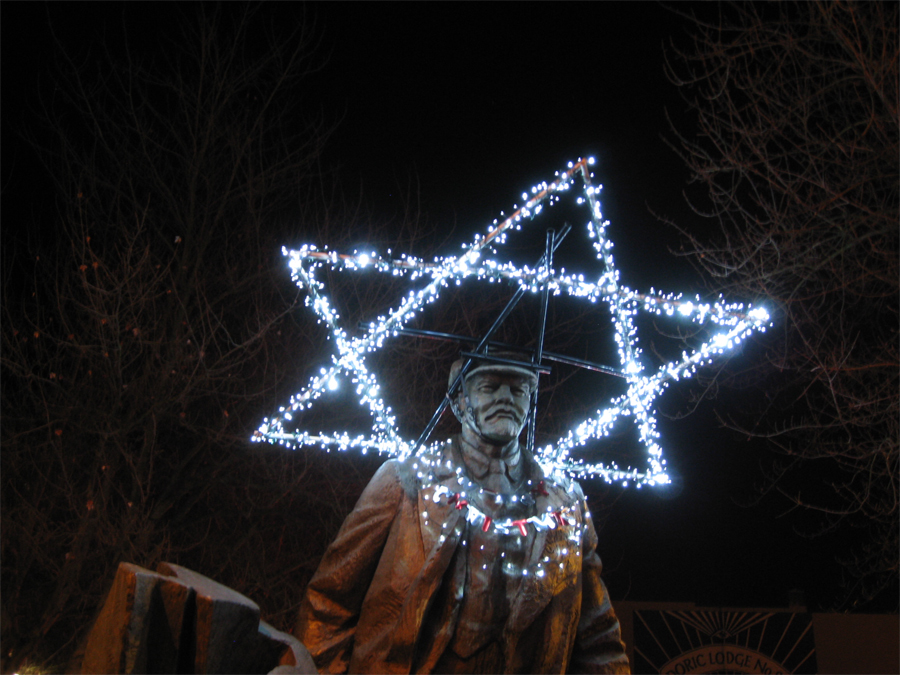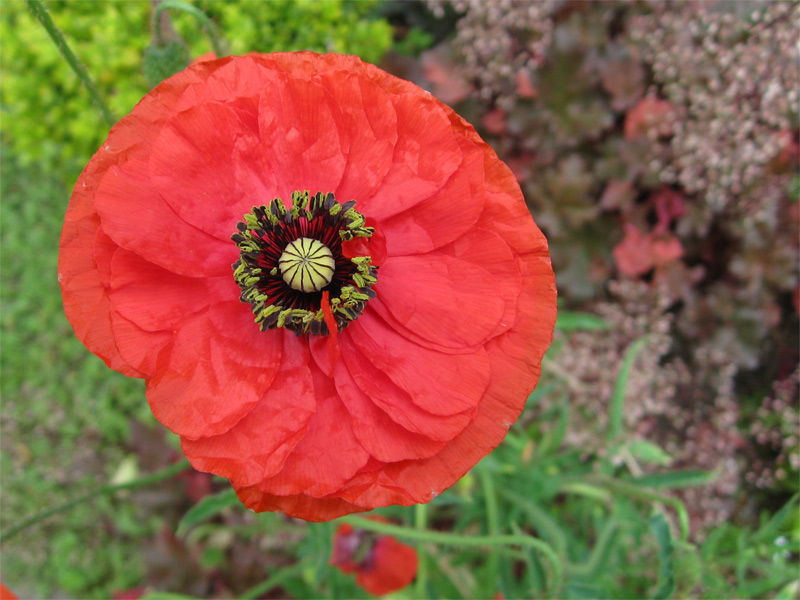(The following is an excerpt from my work in progress “Not From Around Here.”)
People who speak wistfully about the innocent pleasures of childhood give me a pain. Were these people never children? Did they never have to go out onto a public school playground during that hellish free-for-all called recess?
I have to assume that the law of averages applies to childhood experiences. Thus I can accept that for a certain percentage of the population the years between five and twelve offered carefree delights that vanished once the teen age began. But I never felt at ease in the company of other children. They’re so irrational. So unpredictable. So moody.
I certainly was anyway. I entered first grade in Falls Church, Virginia, shortly after we had moved from Pennsylvania, where we had been living for one year while my father tried to pass the bar there. When he failed, we returned to Virginia, where he went to law school at UVA on the GI Bill. In Falls Church we lived in one of those “Wonder Years” kind of neighborhoods. Small one-story houses with three tiny bedrooms on small lots. Everyone had kids. The fathers went to work. The mothers stayed home and did laundry, cooked and, in some cases, counted the hours until cocktail time. The televisions were housed in cabinets and the screen was small and circular, and there wasn’t much on aside from the Walt Disney show and Ed Sullivan. At five o’clock every day all the kids whose families had TVs ran home to watch the Mickey Mouse Club. I envied Annette Funicello with her beautiful wavy hair and perfect smile.
By the time we moved there I had gained a couple more brothers, so we all shared rooms. But when my older brother and I started school, he quickly distanced himself from me; he could sense my nerd cooties emanating like some radioactive force field. I walked to school alone, whistling show tunes. In those days there were no ‘gifted and talented’ programs. If you were a kid who demonstrated skills beyond those of the rest of the class, they might suggest to your parents that you skip a grade. But the schools worried that children who moved away from their peers would fail to adjust socially. So they left me in first grade, where I had to steel myself to listen to dozens of my classmates stumbling courageously through sentences like: “See Jane run. Look at Dick. Jane knows Dick.” Yeah. If I hadn’t been a snide little bitch-in-training before public school first grade, I sure as hell soared to the head of that class.
As any geek who has survived public school can tell you, kids are savages, and the process of blunting their claws and muting their shrieks is not for the faint of heart. The teachers loved me, of course, at first. But that only made things worse for me with the squirming masses who saw in my innocent brown eyes and baby soft blonde hair a perfect target for ridicule. And, admittedly, I was, and for most of my life have been, gullible as hell. My brothers never tired of teasing me to the point of tears and beyond. Until the year when, in a flash of focused rage, I lashed out at one of my younger brothers and broke his arm with a single blow. I felt terrible about it immediately afterward, but the event did realign the course of our later friendship, as if I’d passed some unspoken test and proven myself not guilty of total wimpdom.
However, that watershed event hadn’t taken place yet when I first had to endure the rigors of recess in Virginia. At first, slinking out into the brisk sunshine of September on the bare asphalt playground, I looked around for some group of likely shields, a knot of girls perhaps, or, failing that, some chubby boy with glasses. The old safety in numbers concept is embedded deep in the human psyche; sheep gravitate to other sheep.
Unfortunately, the same group-think applies to the wolves. As I stood there trying to work up the nerve to approach a cluster of girls in poodle skirts and crinoline, a loud boy with the musculature of a future footballer and a glint in his eye that would make him a standout in any police line-up ran into me, and as I was regaining my balance he looked down at me as if just noticing I was there and said, “Are you a Rebel or a Yank?”
I stared at him. I had no idea what he was talking about. During my kindergarten year in Pennsylvania we had covered letters, numbers, primary colors and learned to sing “My Country T’is of Thee” but no mention of Rebels or Yanks had been made.
“What?” I responded.
The boy narrowed his eyes and looked me up and down, from saddle shoes to plaid skirt and white cotton shirt with suspenders. “Yer not from around here, are ya?” he said accusingly.
I told him we’d just moved to Virginia.
“Where you from?” he demanded.
“Erie,” I said, my lips barely moving.
“Where’s that?” he asked.
“Pennsylvania,” I said.
“Hah!” he barked. “I knew it. Yer a Yankee. A damn Yankee.” He reached out and shoved me, not hard, but enough to let me know that whatever a Yankee was, he wanted nothing to do with it. He ran back to his fellow hooligans, and I could see them hooting and pointing at me, as I stood alone, feeling, I imagine, as a gazelle on the African plains must feel when it notices the rest of the herd edging away and the jackals circling.
I waited until I got home that day to ask my father about the difference between Yankees and Rebels, and my father, who was born and raised in Brooklyn, told me that the Rebels wanted to keep slaves and the Yankees fought to free them. Simple as that. No gray areas, no muddling the debate with sophistry about state’s rights or Southern hospitality. Good old right and wrong, my Dad’s strong suit. He never wavered when it came to the fundamental divide. All his life he struggled with doubts about religion and politics and women, but he never doubted his instinctive grasp of justice. Whether or not he was actually right is, as they say, another story.
But as a child, up until the Nixon-Kennedy debates, I accepted my Dad’s views pretty much without a qualm. I loved my Dad. He was a good man. Ergo, what he said was true.
Armed with this conviction I returned to school and hoped that the issue would not come up again, but if it did, I was prepared to have a dialogue with my inquisitors and set them straight as to the error of their ways. Yes, I know what you’re thinking. What a ninny. Yet, you see, this is what I mean by the earlier assertion that I was never a whiz kid. People then, and now, assume that if you can read early, and you continue to read often, that you must, perforce, be acquiring some sort of smarts in the process. And, to a certain extent, this can be true, if you embark on a course of directed reading with someone knowledgeable, say, a college professor, or perhaps a talk show host – just kidding – guiding your analysis of the texts. However, mere reading alone is not a guaranteed path to wisdom, particularly if all you read is fiction.
Even as a child my passion for imaginary stories far surpassed any interest I had in history, math, geography, etc. However, that first year in public school in Virginia forced me to embrace a previously unknown field of writing. I became a philosopher. It may have been dormant in my crabby baby years, but it really got traction on the playgrounds of Westlawn Elementary, where for several years I endured hours of bullying torment and scathing social ostracism because I wouldn’t back down from my pride in being a Yankee.
This only got worse by the time I reached fourth grade and the school curriculum began to include months of indoctrination into the Southern view of what they like to call The War Between the States, which had, according to our textbooks, nothing to do with slavery, but revolved solely around issues of states’ right to do as they pleased without interference from some know-it-all federal government who only wanted to fund their own fancy lifestyle with taxes squeezed from honest Southern farmers.
In the first years of my schooling in Virginia, this view remained almost unchanged from textbook to textbook until in the early 1960s when the Civil Rights movement finally began to make some progress. When I started as a freshman in high school in Fairfax there were no black students in a school with three thousand students. The next year we had half a dozen. They were from around there, but I suspect in that school they felt farther from home than I did.





